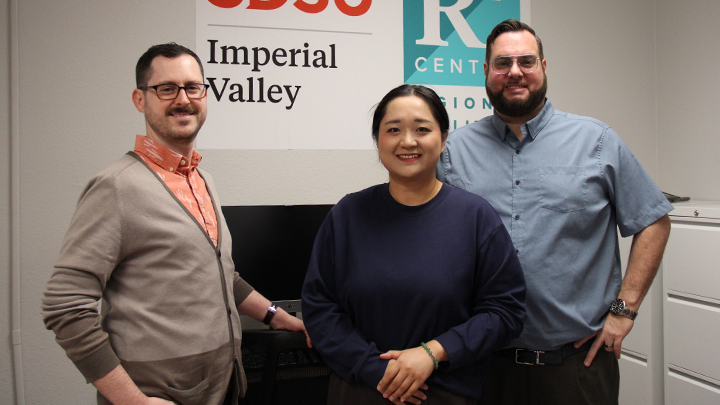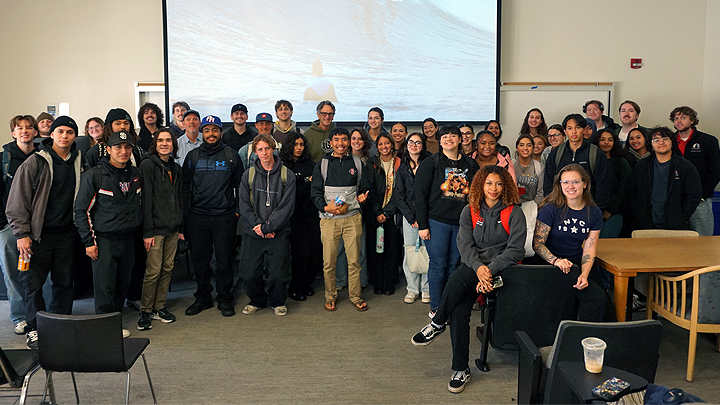SDSU Imperial Valley faculty launch the Regional Resilience (R2) Center
With the new center, SDSU Imperial Valley faculty are partnering with area organizations to create evidence-based research to support local issues.

SDSU Imperial Valley faculty members launched the Regional Resilience (R2) Center, a dedicated space for faculty to conduct student-aided research and for collaborating with community partners on resiliency issues, such as crime prevention, impacting Imperial County.
David Kanaan, associate professor of public administration, and Jeffery Osborne, assistant professor of criminal justice and homeland security, are co-directors of “R-squared,” a shared space for faculty representing the criminal justice, environmental health, homeland security, mathematics, nursing, public administration and social work disciplines.
“As we launch research projects with local agencies, we will open new opportunities for students to get involved and for our faculty members to expand their own research as well,” said Kanaan.
All collaborations with local agencies will be research-to-practice partnerships, a type of partnership in which researchers collect data and publish research findings to create evidence-based practices and policies beneficial to the community and university research. Partners will use those research findings to inform and improve strategies addressing community issues.
“Our center doesn’t necessarily take the lead in projects that are by local organizations or agencies, but support them by measuring the effectiveness of their program or improving strategies that will eventually support the well-being of our communities,” said Osborne.
The center evolved from an earlier program called the Regional Resilience Lab. During its establishment, the team began its work by supporting the National Science Foundation-funded Building Bridges Math program by conducting a program evaluation and providing a report to the team.
“Through the support of the Regional Resilience Center team, we not only prepare incoming students to dive into college-level math courses, but provide important research knowledge that we know will be helpful during their college journey,” said Huan Qin, SDSU Imperial Valley associate professor of math and a faculty fellow for the center.
The new center recently partnered with the Brawley Police Department through a grant from the Department of Justice’s Bureau of Justice Assistance.
The team is supporting the Brawley Police Department on an ongoing fentanyl awareness campaign by assisting with survey analysis from community workshops. The Center conducted a community-wide survey for Brawley residents to assess public safety satisfaction and knowledge of area youth programs. The data collected and analyzed will inform local law enforcement whether their goals and priorities align with the community they serve.
As more projects launch, undergraduate and graduate students will also participate in research activities with partners, and R2 Center faculty will share those same insights in the classroom.
“Everything we do is in a teamwork setting,” said Osborne. “Our partnerships are crucial because we are working together on projects that have a more holistic approach.”
An academic article, to be published this month in the Journal of Security, Intelligence, and Resilience Education, will explore the team's community engagement research.



